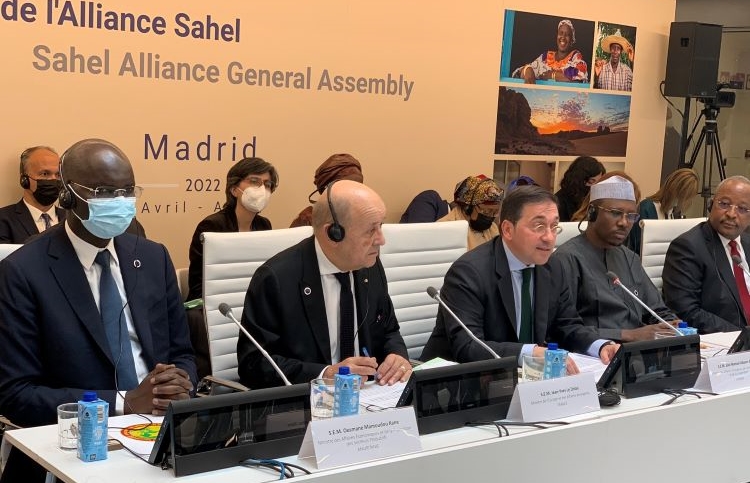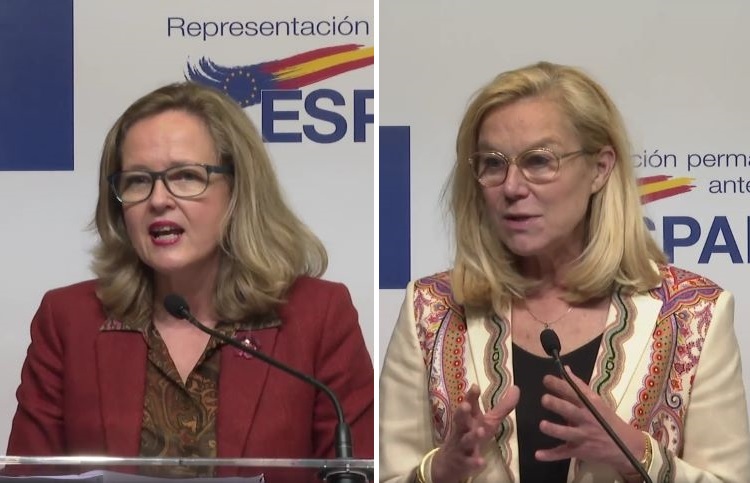The Diplomat
The Minister of Foreign Affairs, José Manuel Albares, chaired yesterday in Madrid the III General Assembly of the Sahel Alliance, in which participants demanded that national security forces respect human rights and international humanitarian law and called for a coordinated response to the “major food crisis” in the region.
“Coordination of key development actors is more necessary than ever,” Albares said during the opening. “It is time for us, the partners, to renew our commitment to the development and stability of the Sahel, for the benefit of its populations. This General Assembly is an exceptional occasion in this regard”, he added.
The Sahel Alliance was born in 2017 in Paris, thanks to the impetus of France and Germany, with the aim of strengthening coordination between partners to make aid to vulnerable areas faster, more effective and more targeted. The 26 members of the Alliance for the Sahel and their partners meet at ministerial level through their General Assembly, which is held once a year and aims to take stock of the past year, strengthen dialogue with G5 Sahel partners and determine strategic guidelines for the coming year to better respond to the needs and priorities of the area. The Alliance currently has 26 bilateral and multilateral partners, 17 as full members (including Spain) and nine as observers. In the coming months, the Sahel Alliance will have three new full members: Canada, the United States and Sweden. The former Minister of Foreign Affairs, Arancha Gonzalez Laya, assumed the rotating presidency of the Sahel Alliance General Assembly on June 24, 2020.
During the meeting, which was held at the headquarters of the Ministry of Foreign Affairs in Plaza Marqués de Salamanca in Madrid, the participants expressed their deep concern over the deterioration of the political and security situation, the resurgence of crises and the deterioration of the food situation in several G5 Sahel countries. They also adopted a series of recommendations, including “maintaining and adapting support for the benefit of the G5 Sahel populations in a context of growing instability and insecurity, so that any development gains achieved are not compromised”, and “the need to respect human rights, humanitarian principles and international humanitarian law, including defense and security forces”.
The Assembly also urged to “provide a coordinated response to the populations of the area and to meet the challenges of the major food crisis facing the G5 Sahel countries”, to “continue efforts in the most fragile areas” to fight “the root causes of instability and limit the spread of conflicts and crises” and to intensify the “participation of young people and women in political life”.
Albares and Le Drian celebrate the agreement on dual nationality
Among the many personalities attending the Assembly were the Chadian Minister of Economy, Development Planning and International Cooperation and current President of the G5 Sahel Council of Ministers, Mahamat Hamid Koua; the French Minister of Europe and Foreign Affairs, Jean-Yves Le Drian, and the European Commissioner for International Partnerships, Jutta Urpilainen.
Before the start of the Assembly, Albares held bilateral meetings with Commissioner Jutta Urpilainen, with whom he addressed the situation in the Sahel, Ukraine and the south and east of Europe, with “an eye on the Spanish Presidency of the EU” -as the Minister indicated in his Twitter account-, and with Jean-Yves Le Drian, with whom he discussed the Sahel and Ukraine and the various aspects of bilateral cooperation and with whom he celebrated the recent entry into force of the dual nationality agreement between the two countries, signed on March 15, 2021 at the XXVI Hispano-French Summit in Montauban.
France is the first non-Spanish and non-Lusophone country with which Spain has signed a bilateral agreement of this type. According to a press release issued yesterday by the Foreign Ministry, “this agreement will further strengthen the great cultural and social proximity that links the Spanish and French, particularly the more than 100,000 French people living in Spain and the nearly 300,000 Spaniards living in France, who contribute daily to the prosperity of our two countries”. Likewise, the entry into force of the Convention “contains a strong historical dimension, as it allows Spaniards who lost their original nationality when acquiring French nationality to recover it retroactively”.







